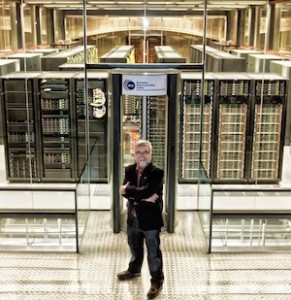Today the Barcelona Supercomputing Center released version 1.4 of the COMP Superscalar (COMPSs) programming environment. COMPSs includes new features that improves runtime performance, a new tracing infrastructure, and support for dockers and Chameleon infrastructure.
Available today, the latest version of COMPSs includes a set of tools to helps developers program and execute their applications efficiently on distributed computational infrastructures such as clusters, grids and clouds. COMPSs is a task based programming model known for notably improving the performance of large scale applications by automatically parallelizing their execution.
COMPSs has been available for the last years to the MareNostrum supercomputer users and to the Spanish Supercomputing Network and has been adopted in several research projects such as OPTIMIS, VENUS-C, EUBrazilOpenBio, EUBrazil CloudConnect, transPLANT and EGI. In these projects COMPSs has been applied to implement use cases provided by different communities across diverse disciplines as biomedicine, engineering, biodiversity, chemistry, astrophysics and earth sciences. Currently it’s also under extension and adoption in applications in the projects ASCETIC, EUROSERVER, the BSC Severo Ochoa program and the Human Brain Project flagship. COMPSs will also be further developed and used in the following recently started H2020 funded projects: EUBRA BIGSEA, NEXTGenIO, MUG, TANGO and the CoE BioExcel.
The new release comes with a better implementation of the workers cache which improves performance. Also, a new tracing mechanism based in native Java calls enables instrumentation of the runtime internals and with support for communication events and HW performance counters have been implemented. This will enable better understanding of the performance bottlenecks of the applications. With regard the computing infrastructures, the new release comes with support for dockers managed with swarm, support for the Chameleon infrastructure, and support for MareNostrum supercomputer as an external resource (this enables to submit COMPSs tasks to MareNostrum from the users’ laptop).
COMPSs is interoperable with both public and private cloud providers like Amazon EC2, OpenNebula and with OCCI compliant offerings.
The packages and the complete list of features are available in the Downloads page. A virtual appliance is also available to test the functionalities of COMPSs through a step-by-step tutorial that guides the user to develop and execute a set of example applications.





